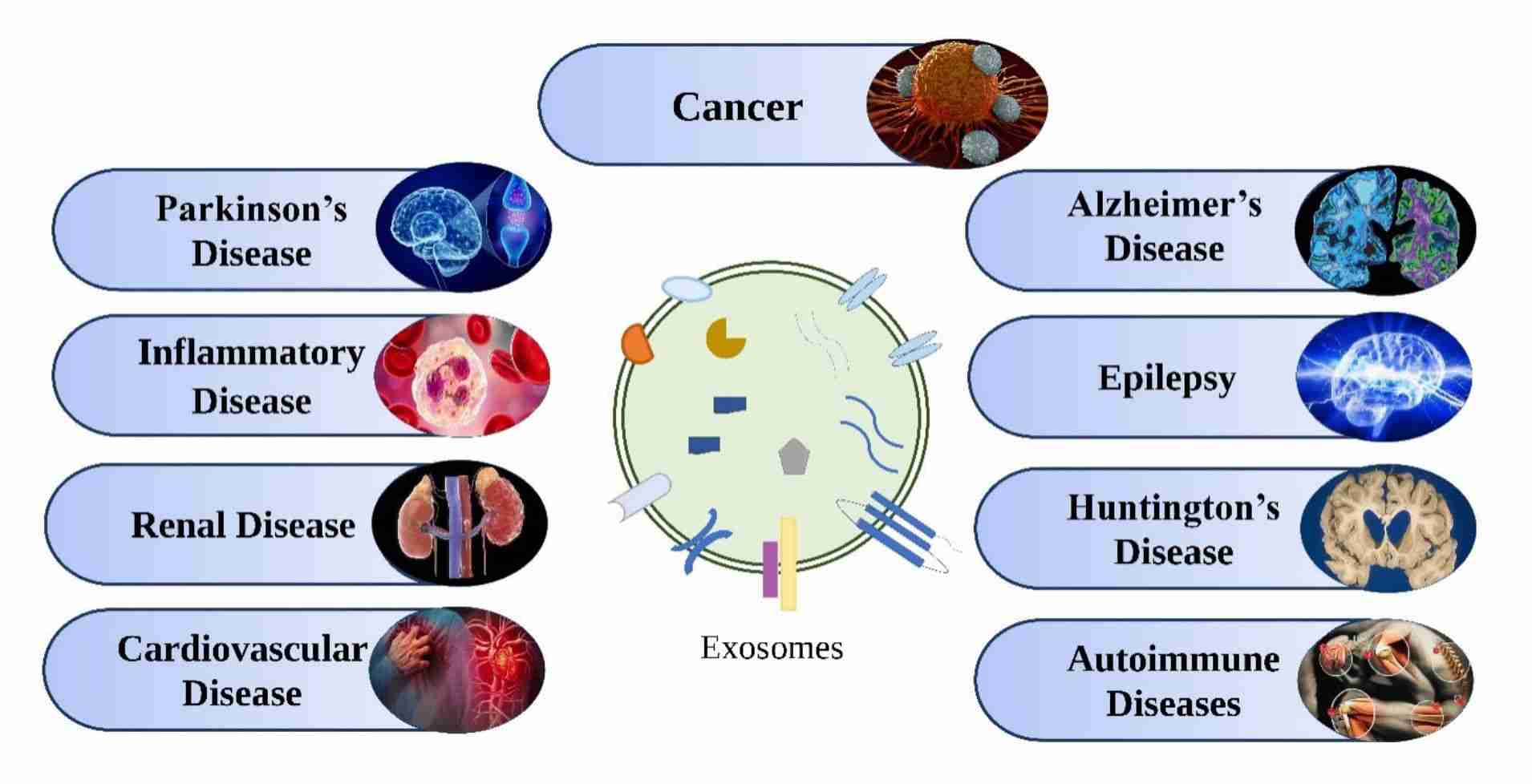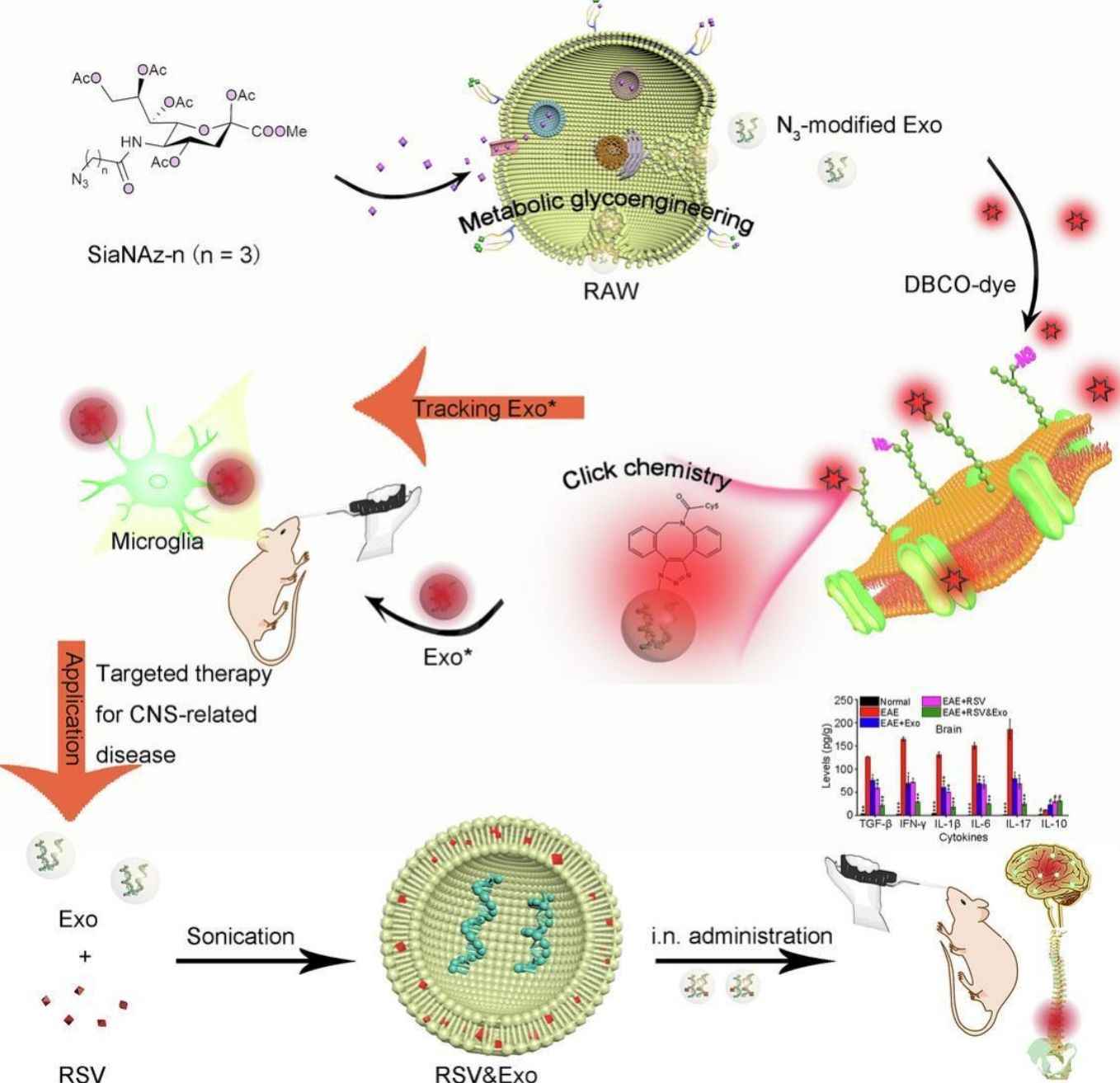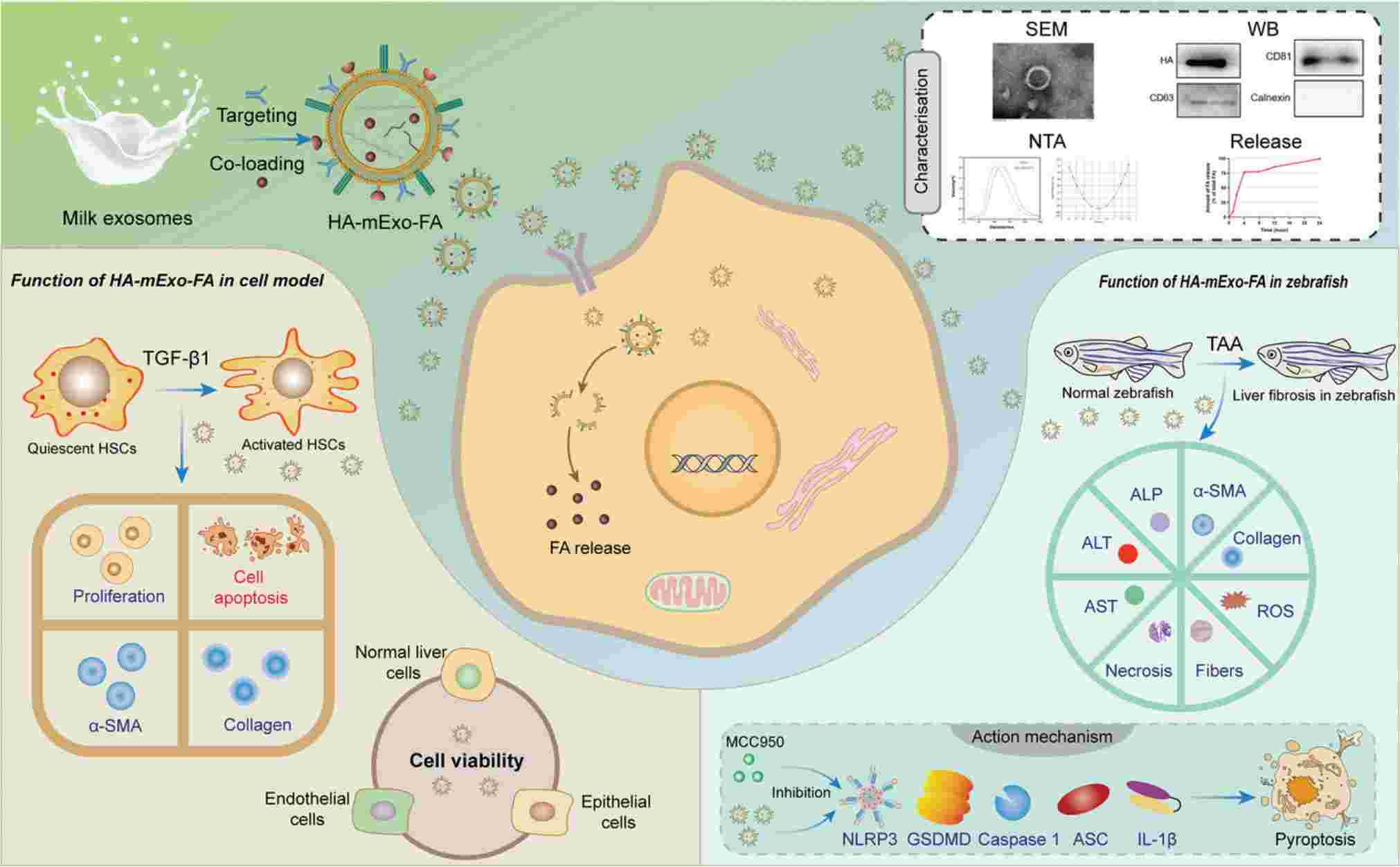Exosomes for Small Molecule Delivery
With nanoscale dimensions and the ability to transfer contents to receptor cells, exosomes are critical in mediating intercellular communication. They can serve as diagnostic biomarkers as well as possible drug-delivery vehicles. Due to the uniquely high stability, biocompatibility, adjustable targeting efficiency, and preferential tumor homing, exosomes become an attractive drug delivery vehicle in cancer therapy. In recent years, the use of exosomes as carriers for small-molecule therapeutic drug delivery has been extensively researched. In particular, exosomes isolated from cancer cells are loaded with anticancer drugs for targeted cancer therapy.
 Figure 1. Therapeutic applications of exosomes in various diseases. (Rajput A, et al., 2022)
Figure 1. Therapeutic applications of exosomes in various diseases. (Rajput A, et al., 2022)
Why Deliver Small Molecule Drugs by Exosomes for Cancer Therapy?
Most small molecule drugs have low water solubility and therefore require the use of specialized delivery vehicles for parenteral administration. Unfortunately, many synthetic drug delivery vehicles can cause serious side effects, including organ toxicity or immune reactions. In addition, multi-drug resistance (MDR) can limit cancer efficacy, especially the overexpression of the drug efflux transporter protein P-glycoprotein (Pgp). To date, some success has been achieved in overcoming cancer drug resistance through the use of novel small-molecule chemotherapeutic agents. However, nonspecific inhibition of Pgp often increases drug toxicity due to altered drug elimination pathways in organs such as the liver and kidney.
Research has shown that exosomes, depending on the properties and source, may have specific cellular tropism and can be used to target diseased tissues or organs. In addition, exosomes collected from immune cells in the patient's body may have an immune-privileged status that may reduce drug failure and immune responses. Thus, exosomes may act as carriers of small molecule therapeutic agents, reducing clearance by the mononuclear phagocyte system while increasing drug transport to target tissues. The avoidance of rapid clearance and toxicity by exosomes, as well as the complexity of their use in the clinical setting, make them an attractive option as drug delivery vehicles for cancer therapy. Several studies have shown exosomes to be potential carriers for therapeutic small molecules such as curcumin, paclitaxel, and adriamycin (DOX).
Research Advances in Exosome Delivery of Small Molecule Drugs
Despite its promise as an endogenous drug delivery vehicle, the current understanding of exosomes may not be sufficient to develop their various applications. In recent years, researchers have synthesized salivary acid analogs with different lengths of N-acyl side chains and screened the optimal metabolic precursors for exosome labeling by bioorthogonal click chemistry. It has been found that exosomes from macrophages (RAW-Exo) strongly co-localize with central nervous system (CNS) microglia. Therefore, a resveratrol-loaded RAW-Exo formulation (RSV&Exo) is developed for the treatment of multiple sclerosis (MS). Intranasal administration of RSV&Exo significantly suppressed the inflammatory response in the CNS and peripheral system in a mouse MS model and effectively ameliorated the clinical development of MS in vivo. These findings demonstrate the feasibility and efficacy of engineered RSV&Exo administration for the treatment of MS, providing a potential therapeutic strategy for CNS disease.
 Figure 2. RAW-Exo loaded with resveratrol alleviates multiple sclerosis by targeting microglia. (Zheng X, et al., 2023)
Figure 2. RAW-Exo loaded with resveratrol alleviates multiple sclerosis by targeting microglia. (Zheng X, et al., 2023)
Liver fibrosis may progress to cirrhosis and cancer. Forsythoside A (FA), an active ingredient extracted from the traditional Chinese medicine Forsythia, has hepatoprotective effects, but suboptimal pharmacokinetic properties limit its clinical application. Researchers developed CD44-specific ligand hyaluronic acid (HA)-modified milk-derived exosome (mExo)-wrapped FA (HA-mExo-FA) nanocarriers. The results showed that HA modification could deliver the drug-carrying exosome to target cells and form specific ligand-receptor interactions with CD44, thereby enhancing the anti-hepatic fibrosis effect of FA. HA-mExo-FA has a promising application in highly specific drug delivery and provides an efficient and novel delivery platform for liver fibrosis treatment.
 Figure 3. Schematic of CD44 targeting drug delivery system of exosomes loading FA for treatment of liver fibrosis. (Gong L, et al., 2023)
Figure 3. Schematic of CD44 targeting drug delivery system of exosomes loading FA for treatment of liver fibrosis. (Gong L, et al., 2023)
Our Products
"Natural nanoparticle" exosomes have gained attention as drug delivery vehicles. Exosomes act as intercellular messengers with the ability to interact with cell membranes and deliver payloads to target cells. Recently, exosomes have begun to be explored as delivery vehicles for small-molecule drugs. Several studies have demonstrated the feasibility of exosome-loaded small-molecule drugs for the therapy of cancer.
Creative Biostructure, as an expert in exosome research, offers a comprehensive range of exosome products to help clients explore the potential application of exosomes as therapeutic small molecule delivery vehicles in cancer treatment.
| Cat No. | Product Name | Source |
| Exo-CH02 | HQExo™ Exosome-A549 | Exosome derived from human non-small cell lung cancer cell line (A549 cell line) |
| Exo-CM01 | HQExo™ Exosome-B16F10 | Exosome derived from murine melanoma cell line (B16F10 cell line) |
| Exo-CH16 | HQExo™ Exosome-COLO1 | Exosome derived from human colon carcinoma (COLO1 cell line) |
| Exo-CH18 | HQExo™ Exosome-LnCAP | Exosome derived from human prostate adenocarcinoma (LnCAP cell line) |
| Exo-CH19 | HQExo™ Exosome-NCI-H975 | Exosome derived from human lung carcinoma (non-small cells) (NCI-H975 cell line) |
| Exo-CH23 | HQExo™ Exosome-BxPC-3 | Exosome derived from human pancreas carcinoma cell line (BxPC-3 cell line) |
| Exo-CH24 | HQExo™ Exosome-SK-BR-3 | Exosome derived from human breast carcinoma cell line (SK-BR-3) |
| Explore All Exosomes Isolated from Cancer Cell Lines | ||
In addition, we provide efficient and reliable one-stop exosome services, including exosome isolation, characterization, labeling, tracking, targeting, and functional analysis. Based on our comprehensive understanding of exosomes, we are committed to satisfying clients' requirements for exosome research. For more information, please contact us.
References
- Rajput A, et al. Exosomes as New Generation Vehicles for Drug Delivery: Biomedical Applications and Future Perspectives. Molecules. 2022. 27(21): 7289.
- Zheng X, et al. Resveratrol-loaded macrophage exosomes alleviate multiple sclerosis through targeting microglia. J Control Release. 2023. 353: 675-684.
- Gong L, et al. CD44-Targeting Drug Delivery System of Exosomes Loading Forsythiaside A Combats Liver Fibrosis via Regulating NLRP3-Mediated Pyroptosis. Adv Healthc Mater. 2023. 12(11): e2202228.
- Kim MS, et al. Development of exosome-encapsulated paclitaxel to overcome MDR in cancer cells. Nanomedicine. 2016. 12(3): 655-664.
